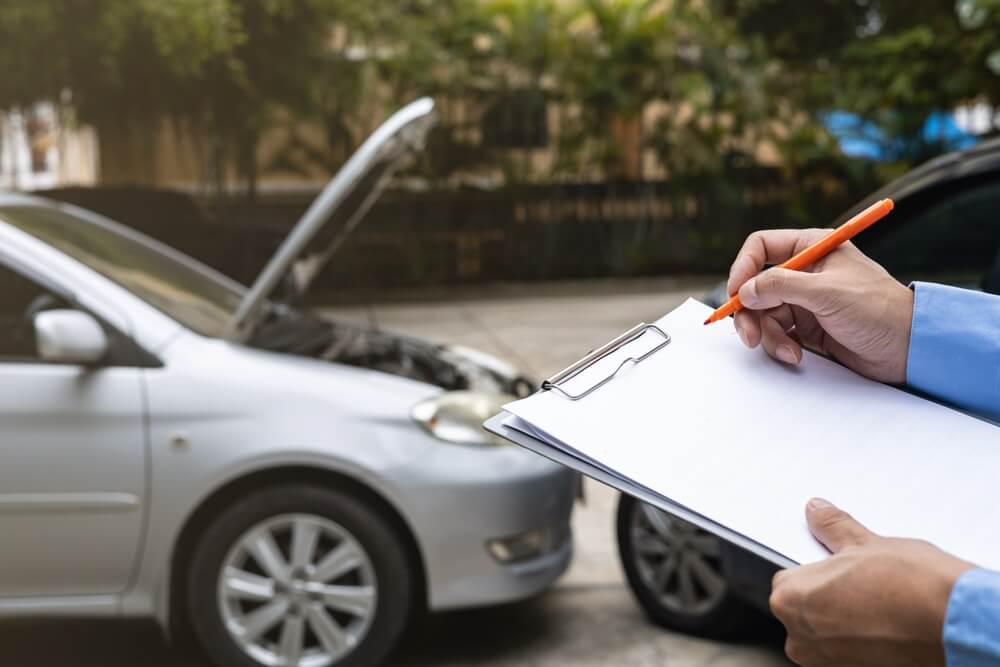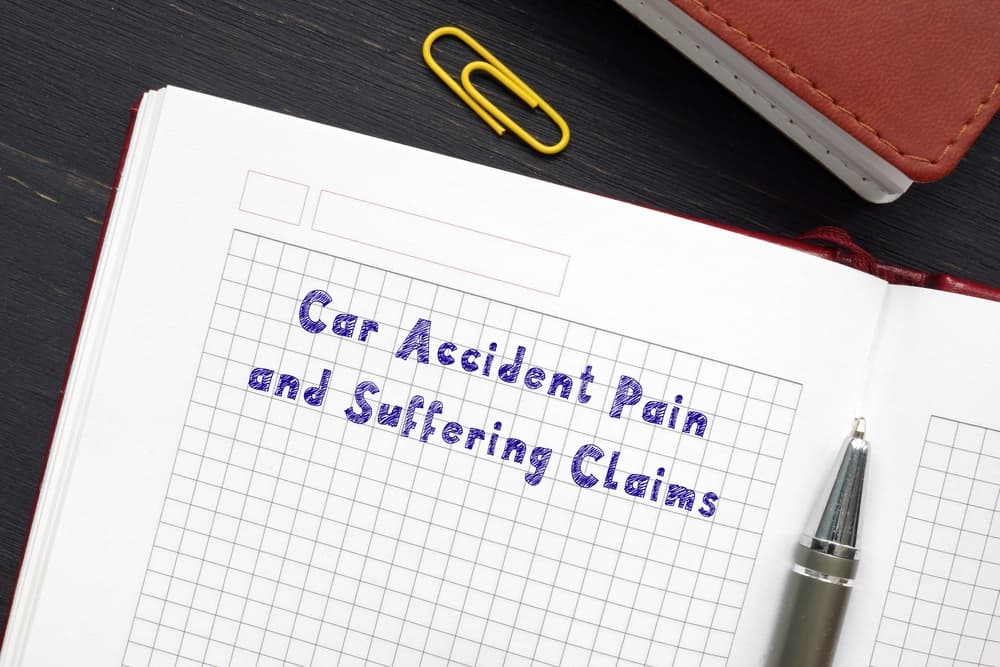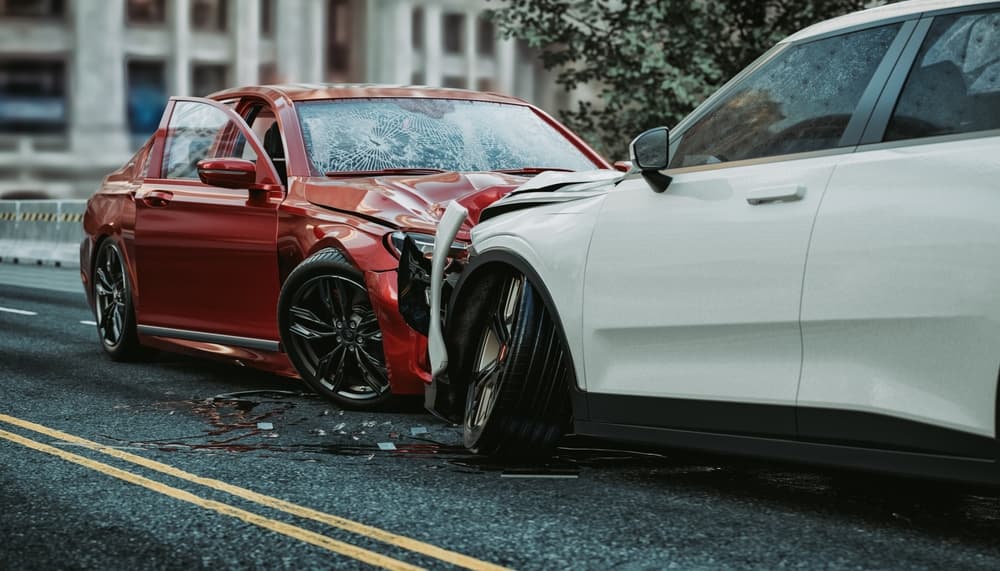After a car accident, you expect the at-fault driver to pay for your damages, including medical expenses and other losses. However, their insurance company may not cooperate. They might fight you tooth and nail, even if you deserve compensation.
If the insurance company does not deny your claim outright, it may offer you the lowest amount possible. While the insurance company may indicate that its offer is the best you will get, you have options. Consulting a car accident lawyer can help you evaluate the fairness of the offer and explore further options to ensure you receive the appropriate compensation for your car accident.
Working with Insurance Companies

After an accident, most people call the insurance company to file a claim. While the representative seems friendly enough even to the point of "helping" you the representative wants to elicit information that the insurance company can use to lessen your payout.
Insurance companies are in business to make a profit. When they pay claims, their bottom line drops. Then their CEOs and board members won't make as much money, especially when claims are hundreds of thousands of dollars or even in the millions, as is the case with catastrophic injuries.
Because insurance companies have their best interests in mind, it is wise to work with an experienced attorney who knows all of the tricks these companies use to deny claims or make lowball offers.
Some of these tricks include:
- Being friendly so you'll talk to them. They may use what you say to pin the blame for the accident on you instead of the at-fault driver.
- Talking you out of retaining a car accident lawyer, usually by telling you the lawyer takes a big chunk of your reward. It doesn't mention that when a lawyer figures the compensation you deserve, the lawyer includes the firm's fees and costs into a fair and reasonable settlement amount over and above medical expenses and other damages.
- Delaying your claim by ghosting you or telling you they are waiting on more information, whether from you or another department in the insurance company. They hope that if they delay long enough, you might get tired of waiting and drop the claim.
- Proposing an amount and telling you that amount is the highest the insurance company can pay. (This is rarely true.)
These are just some tricks insurance companies use to deny a claim or offer a pittance. When you work with an experienced car accident attorney, insurance companies are less likely to try these tricks. And if they do try something, an attorney immediately stops it.
For example, if an insurance company tries to ghost an attorney, the attorney realizes this immediately, starts calling the insurance company, and may even threaten it with a lawsuit. Additionally, insurance companies know that when you retain an attorney, you are more likely to file a lawsuit sooner if the insurance company doesn't offer a fair and reasonable settlement.
How a Car Accident Lawyer Can Help?
Car accident attorneys can help in many ways, including:
Hiring Investigators
The sooner you start working with a car accident lawyer, the sooner the firm can get investigators on your case. If you wait too long before investigating the accident, evidence tends to disappear sometimes inadvertently and sometimes purposely. The weather can eradicate evidence left at the scene. Police often leave impounded accident vehicles outside where the weather can destroy evidence. Witness memories fade.
Property owners repair damaged property, and vehicle owners have their vehicles repaired. They believe that because the police released the vehicle that there is no need to preserve evidence anymore.
And you have those who purposely destroy evidence. Sometimes the at-fault driver wants to mitigate the consequences of their negligent actions by hiding or destroying evidence that could help your case.
Determining Negligence
To recover compensation, you must prove that the defendant's actions or inactions that caused the accident were negligent. A car accident attorney familiar with the law can help prove the defendant's negligence.
To prove negligence, you must show that the defendant's actions or inactions meet the four elements of negligence:
- The defendant has a duty of care. Every driver must drive safely, including following traffic laws.
- The defendant breached the duty of care. For example, if the defendant was speeding and lost control of the vehicle.
- The defendant's actions caused your injuries. Because the defendant was speeding and lost control of the vehicle, it hit yours and caused your injuries.
- You suffered damages because of the defendant's actions. Damages include financial, physical, and emotional losses and issues.
Sometimes, it is difficult to determine whether someone else contributed to the accident. For example, a driver might have broken the speed limit because the gas pedal got stuck. In this case, the vehicle manufacturer or an auto repair technician might share the liability for your damages.
A lawyer for car accident can investigate the case and question witnesses to help determine if the driver or someone else's actions and inactions caused the accident.
Causes of Car Accidents
Most actions that cause car accidents are the negligence of the driver or someone else.
Those who might contribute to a car accident include:
- The driver
- A passenger in the vehicle
- A vehicle manufacturer
- A repair technician
- A driver's employer
- The city, county, or state that maintains the roads
- The weather
Any of these factors could contribute to accidents:
- Driving under the influence of drugs or alcohol
- Driving while tired
- Poor vehicle maintenance
- Poorly maintained roads
- Driving inappropriately for the weather, including in limited visibility due to ice, snow, rain, or glaring sun
- Reckless or aggressive driving
- Driving while distracted
- The driver has a medical emergency
Car Accident Injuries
The injuries you might sustain in an accident depend on many factors, including the size of the vehicle, the speed of the vehicles involved, and how the other vehicle hits you. For example, a head-on crash at 50 miles per hour does more damage than a head-on wreck at ten miles per hour. A head-on crash most likely causes more damage than a sideswipe accident at the same speed unless the sideswipe causes your vehicle to roll over.
Most common car accident injuries could include:
- Bumps, bruises, scrapes, cuts, and scratches
- Road rash
- Chemical or thermal burns
- Strains and sprains
- Pulled and torn muscles and other soft tissue injuries
- Face and eye injuries
- Ear injuries, including deafness, especially if one of the vehicles explodes
- Head, neck, and shoulder injuries
- Internal injuries
- Traumatic brain injuries
- Crushed bones and other crush injuries
- Back and spinal cord injuries
- Amputation of a digit or limb
You could also sustain secondary injuries, such as infections. Whether the infection is in an open wound caused by the accident or in a surgical wound, the at-fault driver is responsible for those injuries and the initial injuries.
Additionally, if the car accident injuries exacerbate an existing illness or injury, the at-fault driver is responsible for the additional financial burden and pain and suffering since you would not have the additional damages if not for the at-fault driver's negligence.
When the Insurance Company Denies a Claim?
After suffering injuries in a car accident, the last thing you need is for the insurance company to deny your claim. You are likely already missing work and might not know when you can return, if at all. If the insurance company denies your claim, you may file a lawsuit. A court will listen to the facts of the case and determine whether the insurance company is wrong in denying your claim. In most cases, insurance companies prefer to settle as it is less expensive than litigation if it loses, it will have to pay its attorneys plus your attorney's fees and costs.
Recovering Damages After a Car Accident
You could recover two kinds of damages after a car accident: compensatory and punitive. Compensatory damages have two categories: economic damages and non-economic damages.
Economic Damages
Sometimes referred to as special damages, economic damages have a monetary value. Most people involved in a car accident can recover economic damages, including:
Medical Expenses
- Doctor's appointments
- Surgeries and follow-up appointments
- Prescriptions and prescribed over-the-counter medications and medical equipment
- Ambulatory aids
- Physical therapy appointments
- Occupational therapy appointments
- Psychological therapy appointments
- Cognitive therapy appointments
- Home health care
- Nursing home or rehabilitative home care
- Accessibility features for your vehicle, including but not limited to hand controls and wheelchair lifts and ramps
- Accessibility features for your home, including wheelchair ramps, widened doorways, handrails, grab bars, and other items
Personal Property
You could recover compensation to repair or replace any personal property damaged or destroyed in the accident, including your vehicle and anything of value in the vehicle, such as cell phones, computers, or clothing.
Earning Capacity
Even if the accident caused minor injuries, you could miss several days or a few weeks of work. You might recover lost income for the time your injuries prevented you from working. If your injuries caused long-term or permanent disabilities, you could recover loss of future earning capacity from the time of the accident through the time you would normally retire.
If your injuries allow you to work, but you can only work part-time or your injuries force you to work full-time in a different field that pays less, you could recover partial loss of future earning capacity.
Death-Related Expenses
If you lost a loved one in a car accident, you could recover death-related expenses, including:
- Funeral expenses
- Burial expenses
- Cremation expenses
- Certain probate court expenses
- Probate attorney's fees and costs
Non-Economic Damages
Sometimes referred to as general damages, non-economic damages do not have a monetary value. Not everyone can recover non-economic damages.
In most cases, those who suffered catastrophic injuries or lost a loved one can recover non-economic damages, including:
- Pain and suffering, including emotional distress
- Loss of quality of life if you have to make life-long changes, including but not limited to taking prescription medications, attending therapy appointments, or using ambulatory aids
- Loss of companionship if you can no longer enjoy spending time with your family or attending family activities and events
- Loss of consortium of you can no longer enjoy a physical relationship with your spouse
- Loss of use of a bodily function, such as your eyesight, hearing, or bladder
- Loss of use of a body part, such as an arm or a foot
- Inconvenience if you have to hire someone to do the chores you usually do, such as grocery shopping, lawn maintenance, house cleaning, and home repair and maintenance
- Excessive scarring or disfigurement
- Amputation of a digit or limb
Punitive Damages

Not everyone can recover punitive damages. You must prove the at-fault driver's actions or inactions were grossly negligent or intentional. Instead of making you financially whole again, punitive damages are a punishment for the defendant's gross negligence or intentional behavior. The court must find that the defendant's actions or inactions go beyond typical negligent behavior.
For example, a driver that goes ten mph over the speed limit might be negligent, but a driver that drives at an excessive rate of speed and plows through a crosswalk full of people might be grossly negligent.
Because you cannot collect punitive damages unless the court awards you compensatory damages, the trial is bifurcated into two parts. Once the jury decides you deserve compensatory damages, the court reconvenes to hear the second part of the trial for punitive damages. You have the same judge and jury. During the second phase of the trial, the jury determines if the defendant should pay punitive damages and, if so, how much.
While it does take extra time and effort to recover punitive damages, in some cases, especially if you suffered catastrophic damages or lost a loved one, it is worth the extra time and effort to recover this type of compensation. If you suffered injuries or lost a loved one because of a car wreck, contact a personal injury lawyer in Myrtle Beach for a free case evaluation as soon as possible.







